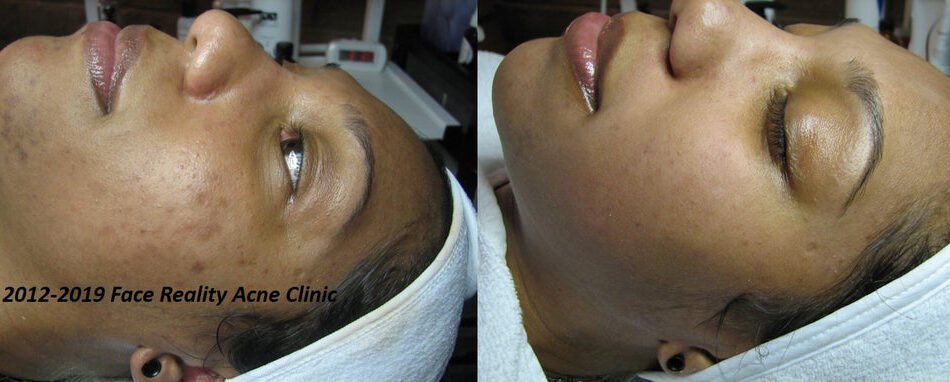Many people have skin problems. Two common ones are acne scars and dark spots. They are different but can look similar. Let’s learn more about them.
What Are Acne Scars?
Acne scars happen after a pimple heals. They are marks left by damaged skin. There are two types of acne scars:
- Atrophic scars: These are small, indented scars. They look like holes or pits in the skin.
- Hypertrophic scars: These are raised scars. They are thicker than the normal skin around them.
How Do Acne Scars Form?
Acne scars form when the skin heals poorly. This can happen if you pick or squeeze pimples. It can also happen if you have severe acne. The skin tries to repair itself, but sometimes it does not do a good job.
What Are Dark Spots?
Dark spots are also called hyperpigmentation. They are flat areas of darkened skin. Dark spots can be brown, black, or gray. They often appear on the face, hands, and other sun-exposed areas.
How Do Dark Spots Form?
Dark spots form when the skin makes too much melanin. Melanin is the pigment that gives skin its color. Dark spots can be caused by:
- Sun exposure: Too much sun can increase melanin production.
- Hormonal changes: Pregnancy or birth control pills can cause dark spots.
- Skin injuries: Cuts, burns, and acne can leave dark spots.
Key Differences Between Acne Scars and Dark Spots
| Feature | Acne Scars | Dark Spots |
|---|---|---|
| Appearance | Indented or raised | Flat and dark |
| Cause | Damaged skin from acne | Excess melanin production |
| Duration | Can be permanent | May fade over time |
| Treatment | More complex, may need medical help | Often treated with skincare products |
How to Treat Acne Scars
Treating acne scars can be hard. Some treatments include:
- Laser therapy: Lasers can remove the top layer of skin. This helps new skin grow.
- Chemical peels: Peels use chemicals to remove the top skin layer.
- Microneedling: Tiny needles make small holes in the skin. This helps new skin grow.
- Fillers: Doctors inject fillers to raise indented scars.

Credit: navanskincare.com
How to Treat Dark Spots
Treating dark spots is often easier. Here are some ways to treat them:
- Topical treatments: Products with ingredients like vitamin C and niacinamide can help. They lighten dark spots.
- Sunscreen: Always use sunscreen. It prevents new dark spots.
- Exfoliation: Removing dead skin cells helps new skin grow. This can lighten dark spots.

Credit: www.facebook.com
When to See a Doctor
If home treatments do not work, see a doctor. A dermatologist can help with stubborn acne scars and dark spots. They can give stronger treatments.
Prevention Tips
Here are some tips to prevent acne scars and dark spots:
- Do not pick or squeeze pimples.
- Use sunscreen every day.
- Keep your skin clean and moisturized.
- Use gentle skincare products.
Frequently Asked Questions
What Causes Acne Scars?
Acne scars form when deep skin tissue is damaged during healing.
What Are Dark Spots?
Dark spots are skin discolorations caused by excess melanin production.
How Can I Differentiate Acne Scars From Dark Spots?
Acne scars are textured; dark spots are flat.
Can Acne Scars Fade Over Time?
Yes, acne scars can fade, but some may need treatment.
Conclusion
Acne scars and dark spots are common skin problems. They are different but can look similar. Acne scars are indented or raised. Dark spots are flat and dark. Both can be treated but may need different methods. Knowing the difference helps you choose the right treatment. Take care of your skin to prevent these issues.

